Free Shipping
On All Orders Over $75
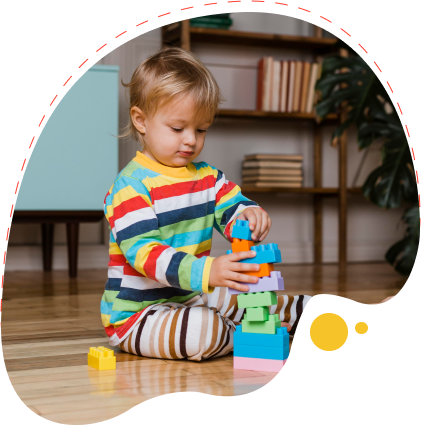
The Montessori method is a groundbreaking educational strategy that originated by the late Italian physician and educator, Dr. Maria Montessori. Her methods focused on inspiring children through self-directed learning and discovery, instead of traditional instructional methods. Montessori’s philosophy has shown significant benefits to a child’s developmental progress by exposing children early to a learning environment filled with educational materials.
At the heart of Montessori education is the belief that children should learn at their pace, selecting materials that resonate with their interests, while educators guide, impart knowledge, and monitor the child's growth. This educational strategy is crafted to foster independence in daily activities and cater to the needs of early childhood.
The impact of this innovative method is profound, touching on cognitive, emotional, social, and physical development. Children are granted a degree of freedom to explore, leading to enhanced self-direction, confidence, and enthusiasm in learning, which collectively contribute to positive developmental outcomes.
Maria Montessori, at the close of the 19th century, after years of professorial research, recognized the need for a new educational approach. Observing the limitations of conventional teaching methods, she envisioned improved classroom environments that would better support skill acquisition. Her program drew from her extensive professional experience and research, particularly in early childhood development.
Thus, the Montessori method was introduced, showcasing the potential of a more free form of education to nurture child development. Over the years, this approach has gained global recognition, with Montessori societies established worldwide and approximately 20,000 schools adopting its principles.
In 2024, numerous studies confirmed that the Montessori method is the best educational framework for preschool children to develop social and academic skills. Many modern parents are increasingly building a Montessori environment at home to guide their children in self-learning.
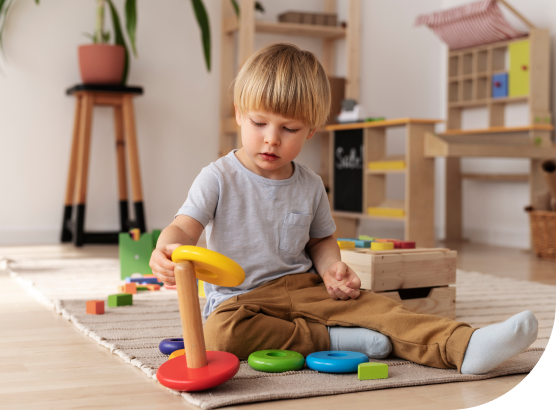
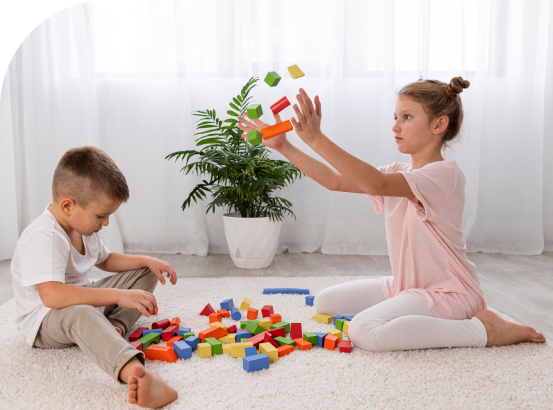
The Montessori method suggests that children possess an innate desire to learn and engage. The educator's role is not to impose learning but to assist children in discovering their most suitable learning journey. This is achieved through seven key principles:
Children take more responsibility for their learning when they can choose their path. This freedom, though bounded, offers a broader range of possibilities than traditional education, fostering independence.
The arrangement of the learning environment plays a crucial role in enhancing or hindering the learning process. Montessori classrooms are carefully organized to support optimal learning.
A child's genuine interest in a subject significantly improves material adoption. Engaging in areas of interest proves more efficient than a one-size-fits-all approach.
Learning through interaction with the environment is vital. Movement facilitates exploration and understanding of the world
Unlike traditional methods that focus on memorization, Montessori emphasizes learning by doing, allowing children to choose their focus and learn through self-guided exploration.
Children learn effectively through imitation. The Montessori method leverages this by encouraging peer learning.
Teachers in Montessori settings actively create optimal learning environments and set boundaries, providing emotional support and preparing students for future challenges.
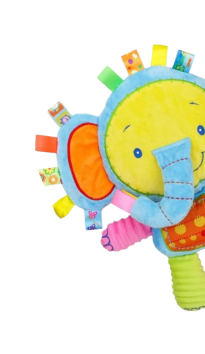
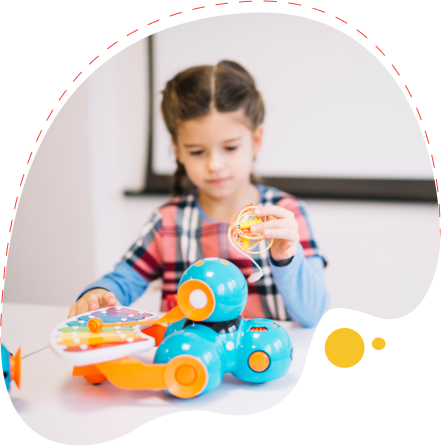
From its inception in a single classroom in Rome, the Montessori Approach has evolved into a significant educational movement. In the U.S. alone, over five thousand schools employ this method, teaching millions of children today. Its success is attributed to its individualized and discovery-centered learning approach, which contrasts sharply with traditional educational methods.
Help your child master simple tasks they can handle, such as tidying up their toys, folding laundry, or brushing their teeth. Offer your encouragement as they attempt these tasks and they'll quickly begin to do these activities independently. Track their advancement and introduce slightly more difficult tasks as they grow. This method will empower your child with a sense of accomplishment while laying a strong foundation for developing vital life skills.
Lorem ipsum dolor sit amet, consectetur adipiscing elit, sed do eiusmod tempor incididunt ut labore et dolore magna aliqua. Tristique senectus et netus et malesuada fames ac turpis. Laoreet suspendisse interdum consectetur libero.
Lorem ipsum dolor sit amet, consectetur adipiscing elit, sed do eiusmod tempor incididunt ut labore et dolore magna aliqua. Tristique senectus et netus et malesuada fames ac turpis. Laoreet suspendisse interdum consectetur libero.
Lorem ipsum dolor sit amet, consectetur adipiscing elit, sed do eiusmod tempor incididunt ut labore et dolore magna aliqua. Tristique senectus et netus et malesuada fames ac turpis. Laoreet suspendisse interdum consectetur libero.
Lorem ipsum dolor sit amet, consectetur adipiscing elit, sed do eiusmod tempor incididunt ut labore et dolore magna aliqua. Tristique senectus et netus et malesuada fames ac turpis. Laoreet suspendisse interdum consectetur libero.
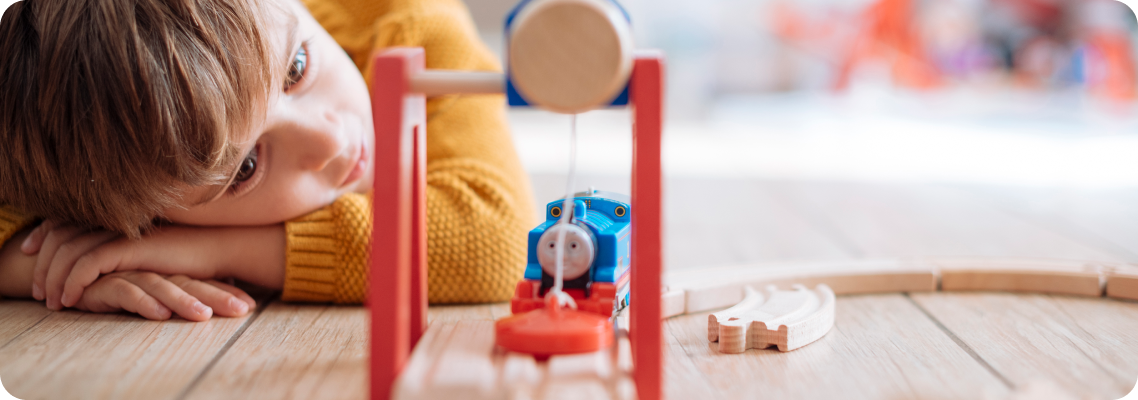
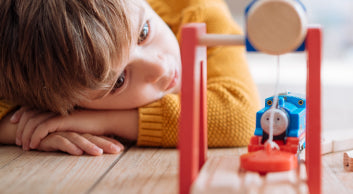
Formal education normally begins at the age of six, when most children are considered ready to understand the academic curriculum. However, your child's greatest major developmental leaps occur within the first six years of their life. This time period is widely recognised by famous psychologists as the foundation for emotional, social, and cognitive development.
Children are eager learners throughout these early years, motivated by curiosity and a basic need to meet their developmental milestones. Therefore, it’s important that you play an important part in accelerating their development and assisting them in their growth.
The learning environment you create for your child holds the secret to success. The Montessori method promotes an engaging environment that satisfies a child's natural curiosity and need to learn. In this setting, Montessori toys are very important.
Children practice developing abilities by playing with these toys, whether it's learning new movements, experimenting with sounds, or connecting actions to results. As infants master a skill, the toy that aided their learning naturally loses its appeal, opening the way for the next challenge. This cycle of discovery and mastery promotes a smooth progression through developmental stages, expressing the spirit of Montessori education.
As a result, each developmental phase necessitates a unique assortment of toys to facilitate the desired growth. Toys designed for 1-year-olds or those intended for 2-year-olds will target distinct skills compared to those crafted for 3 or 4-year-olds, and likewise, toys suitable for kindergarteners
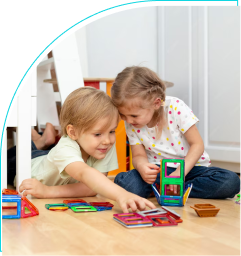
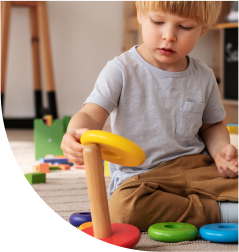
Many famous individuals have had a Montessori education, and they credit the concepts they learned in this special learning environment for some of their achievements and creative thinking. Some well-known individuals who received a Montessori education include:
Founder of Amazon, Bezos often credits his Montessori education for his curiosity and experimental mindset.
The co-founders of Google have mentioned in interviews that Montessori education allowed them to think freely and be creative.
The Academy Award-winning actor attended a Montessori school in his early years.
The diarist and writer attended a Montessori school in Amsterdam before the outbreak of World War II.
The co-founder of Wikipedia, Wales has spoken about how Montessori education helped shape his view of the world.
The famous chef and TV personality credited her Montessori education with her hands-on approach and love of materials and tools
The globally renowned singer and performer attended the St. Mary’s Montessori School in Houston, Texas, during her early years.
The creator of “The Sims” video game series has attributed his creative inspiration to his Montessori education.
Financial analyst, founder, Amazon.com
Both attended Montessori schools during their early childhood.